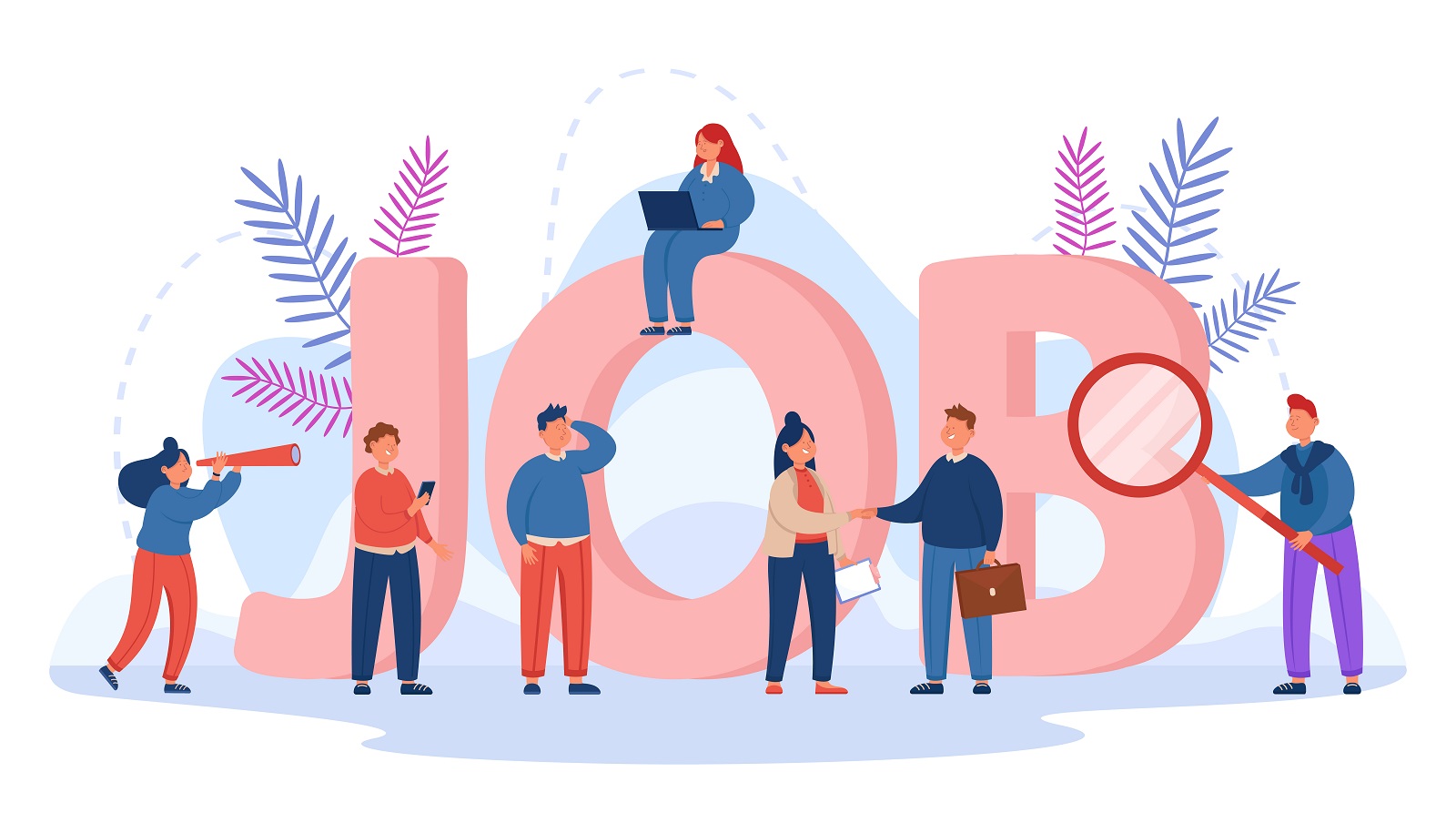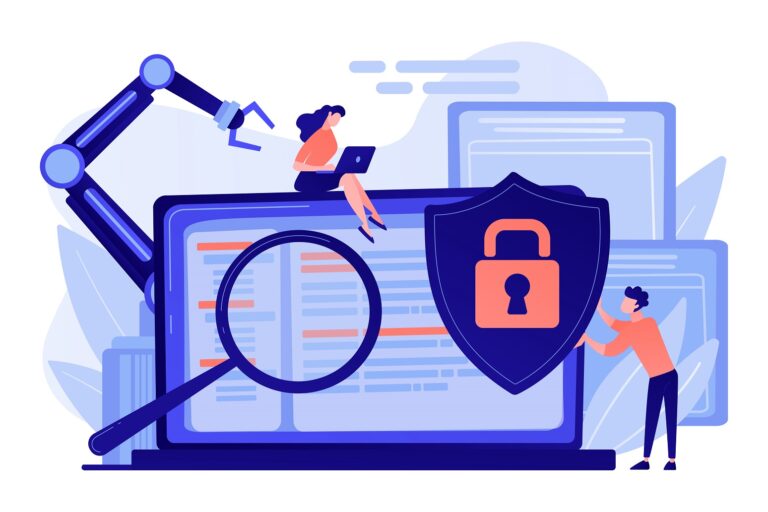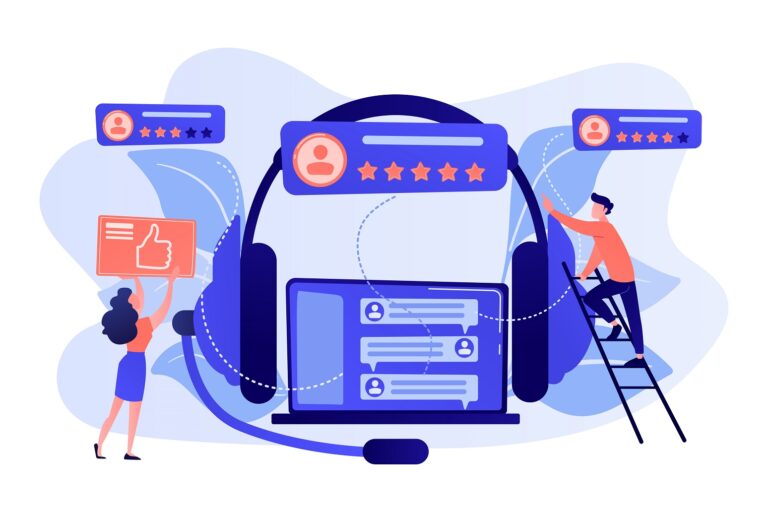The impact of AI-powered software on job markets: A closer look
Step right into an intriguing exploration of artificial intelligence and its rapidly evolving influence on our job markets. As we navigate the rippling effects of AI in our everyday lives, it’s paramount to grasp how it’s reshaping our professional world. This article takes you on a journey, charting the course of AI’s history within job markets, surveying its present implications across numerous sectors, and forecasting its future developments. We’ll delve into AI’s transformation of industries from manufacturing to healthcare, investigate the skills needed to thrive in an AI-focused world, and even anticipate future trends. So whether you’re a professional steering your career, a business leader strategizing for the future, or simply an AI enthusiast, this exploration offers something for everyone. So, fasten your seatbelt and get ready for an enlightening ride into the world of AI and its impact on our job markets.
I. Introduction
A. Brief Overview of AI-Powered Software
Artificial Intelligence is undoubtedly one of the most transformative technologies of our time. By mimicking human thought processes and automating tasks that previously required human intelligence, AI has the potential to change the way we live and work on an unprecedented scale. AI-powered software, specifically, refers to applications that utilize AI and machine learning algorithms to execute tasks, predict outcomes, or generate insights. From Google’s search engine to Amazon’s recommendation system, AI-powered software is everywhere, significantly influencing the way businesses operate and people interact with technology.
This software does not merely execute tasks faster or more accurately than a human could; it learns from the data it processes, progressively improving its performance over time. It’s this continuous learning and adapting characteristic that sets AI-powered software apart from traditional software. And it’s not just about productivity or efficiency; AI-powered software has the potential to lead to groundbreaking innovations that could redefine entire industries.
B. Historical Evolution of AI in the Job Market
The history of AI in the job market can be traced back to the mid-20th century when computers began to replace manual tasks in sectors such as manufacturing. However, the pace of AI integration accelerated drastically with the advent of the internet and the digitization of various industries. Initially, AI primarily threatened repetitive jobs, as automated systems could easily replicate routine tasks.
With advancements in AI and machine learning, however, the impact of AI has been gradually permeating higher cognitive jobs. AI-powered software, with its ability to analyze data, identify patterns, and make informed decisions, has started to take on roles in areas like financial analysis, marketing strategy, and healthcare diagnostics.
Over the past decade, we’ve seen AI evolve from a futuristic concept into an integral part of many jobs. AI is now not just replacing jobs but also creating new ones, as roles like AI Specialist or Data Scientist are now in high demand. Thus, the narrative has been gradually shifting from AI as a job killer to AI as a job transformer.
C. Current State of AI in Various Industries
Currently, AI’s impact is visible across a wide range of industries, radically altering the dynamics of the job market.
In healthcare, for instance, AI-powered software is used to predict disease outbreaks, interpret medical images, and personalize patient treatment plans. This is not to replace doctors or nurses but to enhance their ability to provide care. Similarly, in the automotive industry, AI is driving the development of autonomous vehicles. While this could potentially disrupt jobs related to driving, it also opens up new roles in designing, maintaining, and managing these autonomous systems.
The finance sector is also witnessing considerable AI adoption, with AI being used for tasks ranging from fraud detection to portfolio management. This is creating demand for professionals who can understand and leverage AI in financial contexts. Meanwhile, in the education sector, AI is being used to personalize learning experiences and automate administrative tasks, reshaping the roles of educators and administrators alike.
The manufacturing industry is harnessing AI for optimizing production processes, predictive maintenance, and quality control, which is changing the skill requirements for jobs in this sector.
Thus, the current state of AI in various industries reflects both the opportunities and challenges that come with the rapid integration of AI in the job market. The consequent effects on jobs, skills, and workforce dynamics are profound and merit a closer look, which is what we’ll be doing in the subsequent sections of this article.
II. Examining the Impact of AI Across Various Sectors
A. AI in Manufacturing Jobs
Artificial Intelligence has fundamentally changed the landscape of the manufacturing industry. Advanced robotics, powered by AI, are performing tasks with unprecedented speed and precision. From assembly lines to quality control, AI is reducing human error, increasing efficiency, and, in many cases, surpassing human capability.
AI systems are also aiding in predictive maintenance, analyzing machinery data to predict when a piece might fail and scheduling maintenance accordingly. This not only reduces downtime but also extends the life of the machinery. AI’s influence doesn’t stop there. It has also started to take on roles in inventory management and supply chain optimization, using machine learning algorithms to predict demand and optimize delivery.
While there is fear of job losses in manufacturing due to AI, it also opens up new job roles. There is a growing demand for AI specialists who can design, implement, and manage these AI systems. Moreover, as AI takes over mundane tasks, it allows human workers to focus on more strategic and creative aspects of manufacturing, ultimately elevating the human role in the manufacturing industry.
B. AI in Service Industry Jobs
In the service industry, AI-powered software is transforming everything from customer service to hospitality. Chatbots, powered by AI, are now capable of handling a range of customer inquiries, freeing up human customer service representatives to handle more complex queries and provide a higher level of service.
In the hospitality sector, AI is being used for personalized recommendations, dynamic pricing, and even robotic services, reshaping jobs in hotels, restaurants, and tourism. However, the human touch is irreplaceable in the service industry. Therefore, while AI is altering jobs, it’s unlikely to eliminate them. Instead, it creates a need for workers who can leverage AI tools to provide superior service.
C. AI in Information Technology Jobs
AI has had a tremendous impact on the Information Technology sector, creating entirely new fields like machine learning engineering and data science. At the same time, it’s transforming existing roles. For instance, software developers now often work with AI frameworks, and IT support staff use AI tools to predict and diagnose issues.
Moreover, as cybersecurity threats grow in complexity, AI is playing a critical role in detecting and mitigating these threats, giving rise to a new era of AI-powered cybersecurity jobs. However, the rapid pace of AI developments necessitates continuous learning for IT professionals to stay relevant in their field.
D. AI in Healthcare Jobs
AI’s potential in healthcare is vast, and we’re just starting to tap into it. AI-powered software is now being used for everything from diagnosing diseases from medical images, predicting patient risk, to personalizing treatment plans. This doesn’t mean AI will replace doctors; instead, it’s a tool that can augment a healthcare professional’s capabilities.
AI is also transforming administrative tasks in healthcare, such as patient scheduling, billing, and maintaining electronic health records. This is reshaping administrative jobs, with a growing need for healthcare administrators who are familiar with these AI tools.
E. AI in Other Emerging Fields
AI is also making its mark in various emerging fields. In agriculture, AI is used for precision farming, which improves yield and reduces environmental impact. This is leading to a new breed of agri-tech jobs that blend agriculture with AI skills.
In the energy sector, AI is used to optimize energy generation and distribution, which is creating new roles in energy analytics. Meanwhile, in creative fields like design and content creation, AI tools are enhancing human creativity, not replacing it, leading to new forms of creative tech jobs.
Overall, while AI is undoubtedly disrupting jobs across sectors, it’s also creating new ones and enhancing others, ultimately leading to a transformed, not reduced, job market.
III. Preparing for an AI-Dominated Future Job Market
A. Necessary Skillset in an AI-Driven Job Market
As AI continues to penetrate various sectors, the job market’s skill requirements are undergoing significant transformations. While technical skills related to AI and machine learning are on the rise, the importance of soft skills has been amplified in the AI-era.
AI systems, while highly efficient, lack the emotional intelligence and creative thinking that humans bring to the workplace. Therefore, skills such as emotional intelligence, creativity, critical thinking, and complex problem-solving are expected to be in high demand.
In the AI-driven job market, skills in data literacy will also be paramount, as businesses increasingly leverage data for decision-making. Understanding and interpreting data, and translating it into actionable business insights, will be crucial across many job roles.
Moreover, given the pace at which AI is evolving, the ability to continuously learn and adapt to new technologies will be key. This emphasizes the importance of learning agility in the future job market.
B. The Role of Education and Training
To prepare the workforce for an AI-driven job market, a revamp of education and training is necessary. Traditional education systems will need to incorporate AI and data literacy into their curricula, even for non-technical fields. Moreover, schools and universities will need to instill a culture of lifelong learning and adaptability, preparing students for a future of constant technological change.
For those already in the workforce, reskilling and upskilling will be key. Employers can play a pivotal role here by providing AI and technology training programs. Massive Open Online Courses (MOOCs) can also play a crucial role in enabling access to quality AI and data literacy education for the masses.
C. Policy Considerations for AI in the Workplace
As AI becomes increasingly prevalent in the workplace, there are several policy considerations that need to be addressed. One key area is ensuring that AI systems are used responsibly and ethically. Policies need to be in place to avoid bias in AI decision-making and to ensure the privacy and security of data used by AI systems.
In terms of labor policies, while AI will create new jobs, it will also render some current jobs obsolete. Therefore, policies should be in place to support those displaced by AI. This could involve providing reskilling programs, unemployment benefits, and support in job transitioning.
Finally, there is a need for industry-wide standards and certifications for AI systems. These would provide a benchmark for AI safety and performance, promoting trust in AI systems among employees and consumers alike.
The impact of AI on the job market is profound and multi-faceted. Preparing for this AI-dominated future is not just about acquiring the right skills but also about creating an ecosystem – of education, training, and policies – that supports this transition.
IV. Future Trends: AI and the Job Market
A. Predicting the Future of AI in the Job Market
Predicting the exact trajectory of the job market as influenced by AI can be challenging due to the fast pace of technological evolution. However, it’s undeniable that the impact of AI on jobs will continue to intensify.
Firstly, AI is likely to permeate more job sectors, including those traditionally considered ‘human-centric’. For example, the creative industry will witness an increased use of AI in areas such as content creation, design, and even music and art.
The rise of AI will also lead to the creation of entirely new job categories. As businesses rely more on AI systems, there will be an increasing demand for professionals who can design, maintain, and improve these systems. New job roles around AI ethics, regulation, and policy are also likely to emerge.
At the same time, automation will continue to displace certain jobs. Routine and low-skill tasks are the most vulnerable, but AI is also encroaching on tasks that require complex decision-making.
B. Opportunities and Threats Ahead
As we look to the future, AI presents both opportunities and threats in the job market. On the one hand, AI has the potential to boost productivity, increase efficiency, and create new jobs, offering immense economic benefits.
In particular, AI can automate mundane tasks, freeing human employees to focus on tasks that require creativity, critical thinking, and emotional intelligence. This can lead to more fulfilling job roles and increased job satisfaction.
AI can also provide personalized training and career development opportunities, aiding in employee skill development and fostering a culture of continuous learning.
On the other hand, the rise of AI presents significant challenges. Job displacement due to automation could lead to increased unemployment, especially among low-skill workers. There are also concerns about increased income inequality, as the benefits of AI are likely to be unevenly distributed.
Further, as AI systems become more complex, there are growing concerns about transparency and accountability in AI decision-making. The misuse of AI technologies could lead to issues of bias, privacy, and security.
As we navigate these opportunities and threats, it’s crucial to shape the development and use of AI in a way that maximizes the benefits while mitigating the risks. This requires proactive efforts from all stakeholders – businesses, educators, policymakers, and employees themselves.
The future of AI in the job market is not a predetermined destiny. It’s a future that we have the power to shape. Let’s use this power wisely to create a job market that is fair, inclusive, and beneficial for all.
V. Conclusion
A. Key Takeaways
As we draw to the end of our exploration of AI’s impact on the job market, let’s summarize some of our key insights.
- AI has come a long way, and its presence in various sectors is undeniable. It has integrated itself into diverse fields like manufacturing, service industry, IT, healthcare, and more, often resulting in improved efficiency and productivity.
- The impact of AI on job roles is two-fold. While some jobs face the risk of being automated, AI is simultaneously creating new job categories and opportunities in emerging fields. It’s causing a shift in the job market rather than its destruction.
- To navigate an AI-dominated job market, one must focus on cultivating a skill set that AI cannot replace. This includes creative problem-solving, critical thinking, emotional intelligence, and adaptability.
- Education and training will play a pivotal role in preparing the workforce for an AI-driven job market. This includes not only technical training but also education in AI ethics and policy.
- Policy considerations are vital in ensuring the ethical use of AI in the workplace. Regulations are needed to address issues such as privacy, security, and bias in AI decision-making.
- The future job market influenced by AI is rife with both opportunities and threats. While it can lead to economic benefits and job satisfaction, there are also concerns about job displacement, income inequality, and misuse of AI technologies.
B. Final Thoughts
We stand at the cusp of an AI-driven era, where our relationship with technology is set to redefine the very fabric of our work lives. AI’s integration into our job market is a transformative event, comparable to industrial revolutions of the past.
However, unlike past revolutions, we have the advantage of foresight. We can prepare for an AI-dominated future by nurturing the necessary skills, adjusting our education systems, implementing thoughtful policies, and most importantly, fostering a mindset of adaptability and lifelong learning.
As we embrace the future, we must remember that AI is a tool. How we utilize this tool, its impact on our jobs, and the kind of future we shape — ultimately rests in our hands. It’s our responsibility to steer AI’s trajectory so it serves us as a society, enriching our job market and empowering us as a workforce.
The influence of AI-powered software on our job market promises to be a fascinating journey. Whether it’s a dystopia of job losses or a utopia of AI-human collaboration will depend on the choices we make today. The future of work is not just happening to us; we are the ones shaping it. Let us ensure we shape it well.







